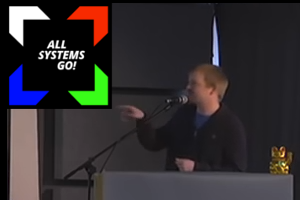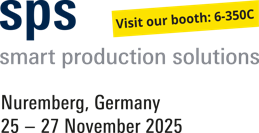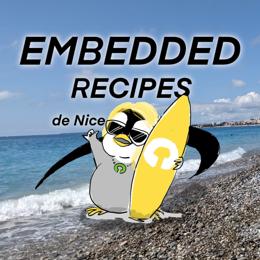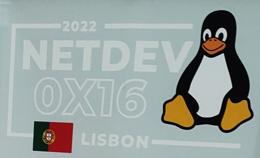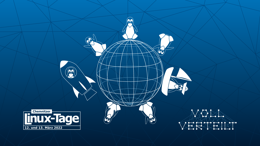Talk at All Systems Go 2017 Conference
Before the ELC-E conference starts in Prague, Berlin hosts the All Systems Go conference, the successor of the systemd conference. In times of increasing IT security incidents with IoT devices, updating such systems in a secure and reliable way becomes more and more important. Michael Olbrich's talk outlines the challenges and possible solutions for a robust update process.
Common system update patterns from the IT world can not be simply transferred to IoT devices, which usually don't have an administrator and thus need to have absolutely reliable mechanisms for unattended updates.
Our modern update concepts use many open source components, such as barebox, systemd, RAUC and casync.
More about the talk can be found in the conference schedule. Usually, there is a live stream at media.ccc.de.
Further Readings
Pengutronix at SPS in Nuremberg
After some years of absence, Pengutronix is back at the SPS 2025 in Nuremberg. You will find us in hall 6, booth 6-350C. We are looking forward to connecting with old and new friends, partners and customers. As usual, we will be showcasing demonstrators on current topics at our exhibition stand.
GStreamer Conference 2025
This years GStreamer conference was held at the end of Oktober in London, UK. Since GStreamer is our goto-framework for multimedia applications, Michael Olbrich and me were attending this years conference to find out what's new in GStreamer and get in touch with the community.
Talks, Workshops, Time at the Beach - Embedded Recipes 2025
I was part of a small delegation of Pengutronixians at the Embedded Recipes conference this year in Nice, France. We had a great time there, so let's take a look back at the great talks we have seen, the labgrid workshop we held and our time in Nice in general.
Netdevconf 0x16
After a longer time with online-only events, the Netdev 0x16, a conference about the technical aspects of Linux Networking, was organized as hybrid event: online and on-site at Lisbon.
CLT-2022: Voll verteilt!
Unter dem Motto "Voll verteilt" finden die Chemnitzer Linux Tage auch 2022 im virtuellen Raum statt. Wie auch im letzten Jahr, könnt ihr uns in der bunten Pixelwelt des Workadventures treffen und auf einen Schnack über Linux, Open Source, oder neue Entwicklungen vorbei kommen.
Wir haben doch etwas zu verbergen: Schlüssel mit OP-TEE verschlüsseln
Moderne Linux Systeme müssen häufig zwecks Authentifizierung bei einer Cloud- basierten Infrastruktur oder einer On-Premise Maschine eigene kryptografische Schlüssel speichern. Statt der Verwendung eines Trusted Platform Modules (TPM), bieten moderne ARM Prozessoren die TrustZone-Technologie an, auf deren Basis ebenfalls Schlüssel oder andere Geheimnisse gespeichert werden können. Dieses Paper zeigt die Nutzung des Open Portable Trusted Execution Environments (OP- TEE) mit der Standardkonformen PKCS#11 Schnittstellen und i.MX6 Prozessoren von NXP als Beispiel.


